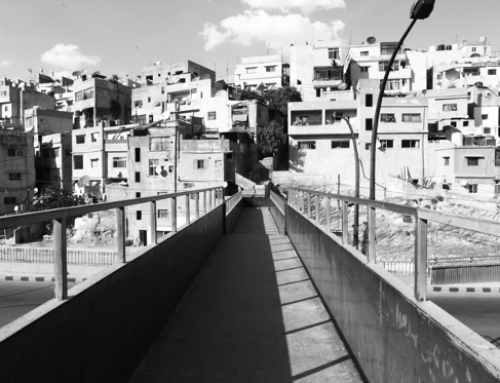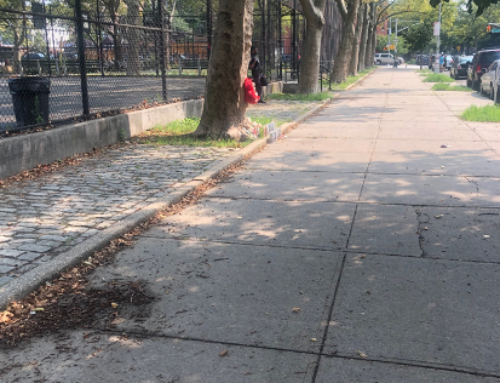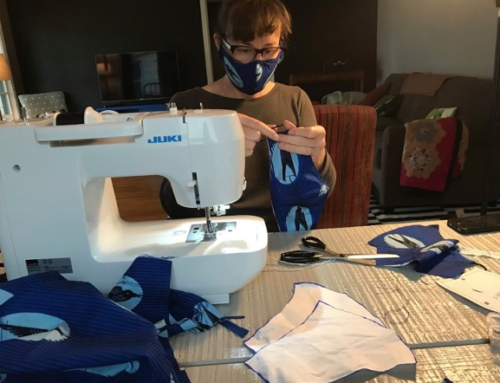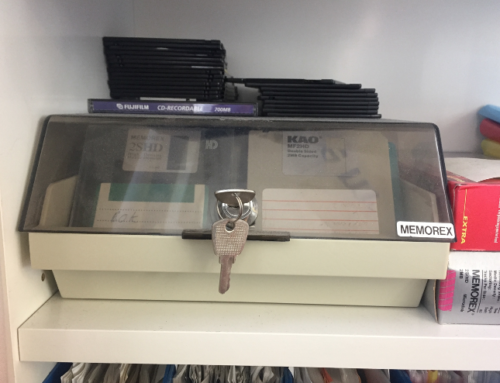It was February 28. I was going to Cuba with my usual fear — this time “they” wouldn’t let me out and it would serve me right for going back to a country my family escaped and only I keep returning to obsessively.
It was also the eve of the pandemic. Should I cancel the trip?
I was more concerned by the pain in my left hip. “Arthritis,” a doctor told me, and I thought of my mother’s lovely hands turned into knotted twigs.
I grabbed my Cuban passport and told David, my husband, “Tell me everything will be okay.”
“It will be,” he said.
The Obama-era crowds of American travelers had been driven away by Trump’s travel advisories. Our Delta flight to Havana was packed with Miami Cubans going to visit family, bearing gifts. There were life-size dolls from some horror movie—a blonde one with a pink cowboy hat and pink boots; a too-fleshy head peeking out of a plastic bag.
When the plane landed, everyone clapped. It’s what Cubans do. We’re grateful not to have died.
In excruciating pain, I limped through the airport, furious when anyone pushed in front of me.
It scared me to see the customs authorities wearing handmade masks fashioned from the same green olive cloth as their uniforms. No cases of the coronavirus in Cuba yet. But they knew it was coming.
David presented the immigration form at the exit. I pretended to be a bumbling foreigner, a Yuma wife traveling with her Yuma husband. If they know you’re Cuban, they’ll be mean.
The bored officer waved us through.
“Keep going,” I told David. “Don’t look back.”
I stepped outside and breathed in the humid air and felt my hair instantly curl. We were in Cuba!
“Calle 15, esquina I,” I told the cab driver, directing him to the building where I lived as a child.
Cristy, my neighbor when we were little girls, still lives in the building. She has an Airbnb rental there with air conditioning and clunky wicker furniture. After a quick hello, she updated us on the latest failings of the revolution. There was a chicken shortage, a tragedy for Cubans who must eat animal protein every day. She’d stood on line for hours to buy a few chicken wings.
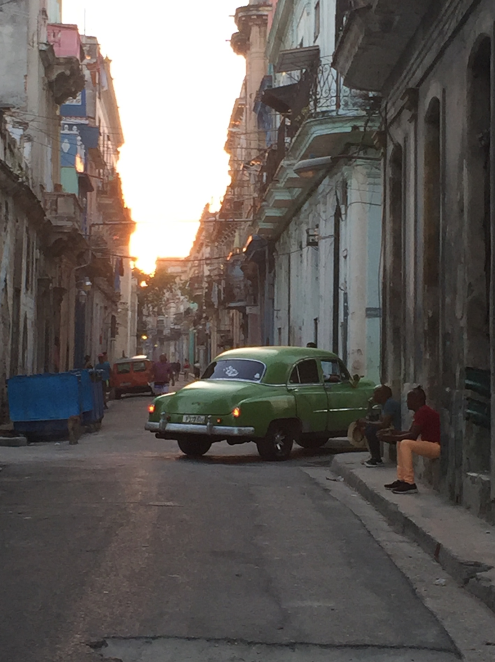
Havana, March 2020. Photo by Ruth Behar.
We talked about the coronavirus. “If it reaches Cuba,” she said, “none of us will survive.”
I did the ritualistic things, visiting my childhood park with the gazebo in the center. And heeding the call of fieldwork, I hung out at the synagogue and asked questions. They no longer opened every day. All the American Jewish groups had stopped coming and they were short on cash to pay bills.
A colleague from Michigan, in Havana for a health conference, had rented an Airbnb apartment in a part of La Habana Vieja on the verge of gentrification. “Come see it, you’ll love it,” she said.
She was right. The exterior was a chalky ruin, the interior a sleek modern space with polished concrete floors, cedar dining table, and wispy bistro chairs.
My colleague gave me her landlady Lily’s number. The next day, my last in Havana, Lily showed me another of her Airbnb apartments. It was even more stunning, looking onto a corner that sparkled with street life and outdoor restaurants.
Lily spent ten years in Toronto until, tired of the snow, she returned to Cuba after it became legal to buy and rent out apartments. She’d studied nuclear physics and became a construction manager. She had an eye for how a space could be made beautiful after it was gutted.
I started dreaming aloud. “I want a place like this, so I can come to Cuba and be here whenever I want. Will you help me?”
She smiled. “Of course.”
David, worn down by the heat, napped on the sofa while Lily and I studied an ad for an art nouveau apartment across the street that was for sale. It was up a flight of stairs, like Lily’s apartment. That didn’t worry me. My hip pain had completely disappeared.
“That would be perfect for you,” she said.
I agreed. I saw myself growing old in the heart of La Habana Vieja where my family had once lived.
The next day we flew back to Miami. When we landed, Cristy sent me a message on WhatsApp. She got into an ugly fight with another woman hustling for chicken wings. Three days later, Cuban news sources announced that three infected Italian tourists had brought the coronavirus to the island.
I returned to Michigan and shut myself up in my old Victorian house, quarantine and agoraphobia combined. I fear for my life in ways that not even the Cuban government can make me feel afraid. Not a day passes that I don’t say to David, “Tell me everything will be okay.” I try to believe him when he replies, “It will be.”
Cite as: Behar, Ruth. 2020. “Tell Me Everything Will Be Okay.” In “Flash Ethnography,” Carole McGranahan and Nomi Stone, editors, American Ethnologist website, 26 October 2020, [https://americanethnologist.org/features/collections/flash-ethnography/tell-me-everything-will-be-okay]
Ruth Behar teaches anthropology and writing at the University of Michigan. She is author of many books including, most recently, Letters from Cuba (Penguin Random House, 2020).
